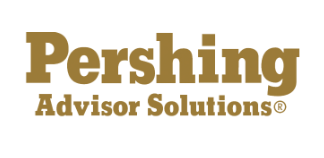On Wall Street: The Strategic Rationale for Advisors and Accountants to Work Together
October 2015
By: Philip Lazzari
Most high-net-worth investors hire financial advisors to achieve their financial objectives and accountants to handle their tax matters, but too often the clients unintentionally put a wall between these two groups.
Although advisors and certified public accountants often view each other as competitors, separating the two roles is counterproductive. In fact, there is a universal financial benefit to playing nice in the sandbox, and it can benefit the advisor, the accountant and most importantly the client.
When advisors work together with a client’s tax team, it first and foremost helps identify potential tax savings opportunities for the client. It also reinforces a shared value proposition: We have both been hired to preserve and grow accumulated wealth, so how can we possibly do that in silos?
Beyond the primary charge, such collaboration is even a good way for advisors to develop relationships with accounting firms, which can turn into reliable new business referral sources.
That isn’t a pipe dream, either. It actually works, and in a perfect situation, the CPA might even become the client.
As we enter the home stretch of 2015, there is still plenty of time for advisors to start a productive dialogue with their clients’ tax professionals about tax savings. It bears stating the obvious: The sooner advisors do this, the more time they will have to strategize and execute.
Here are some guideposts for that process:
1. Plan a partnership. Make asking clients about their other specialist relationships a standard practice. When advisors first engage a client, they should inquire about other professional advisors, lawyers included and connect with them by phone and in person. It sets a professional tone of collaboration from day one and shows the client that their advisor is considering all their needs.
2. Let the tax man do his thing. Leave the tax responsibilities to the CPAs. Complex tax strategies need to be handled by tax specialists. Stepping back and not getting in the way benefits clients, strengthens the advisor’s relationship with the CPA and can lead to new business. We often refer our clients to CPAs, and they have reciprocated. This helps the relationship blossom and helps both sides build their businesses.
3. It is a matter of trust. Clients don’t want to get involved in the minutiae of financial planning. That is why it is essential that the client trusts us to interact with their tax teams while they go about their lives. Ultimately, direct contact between the advisor and the CPA produces more meaningful and efficient communication with the client, no matter the frequency.
If advisors and CPAs already agree that there are challenges working with industry counterparts on a client’s behalf, then they are already on the same page. It is the management of those potential challenges that can be the difference between setting roadblocks and creating opportunities.
Perhaps that is the start of the tax planning process becoming a mutually beneficial proposition.
Philip Lazzari is a partner and managing director at Snowden Lane Partners in Baltimore.
View Original Post




